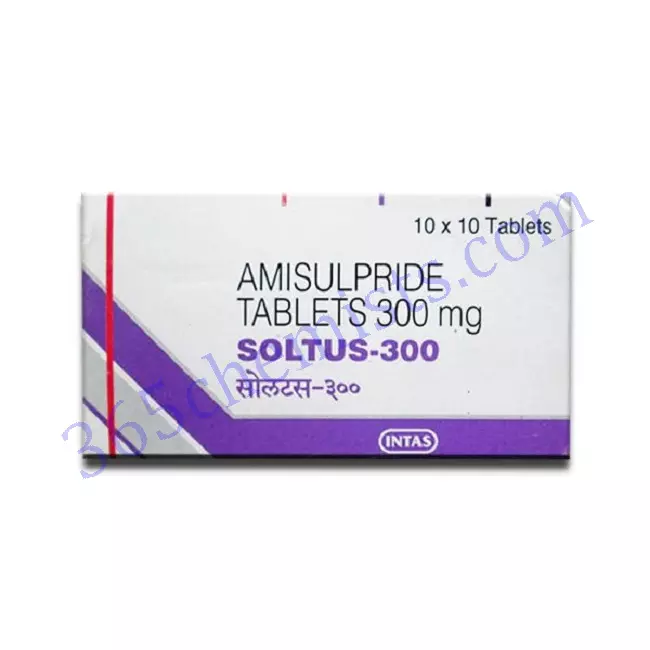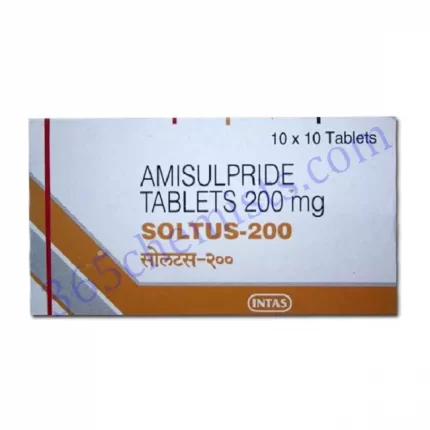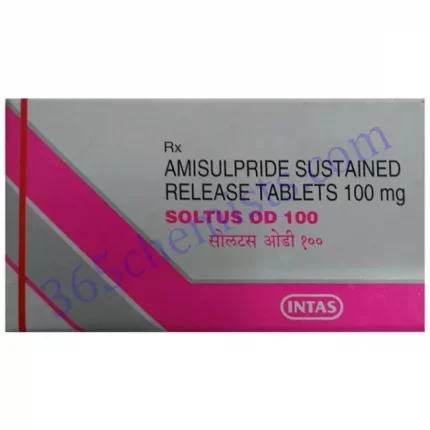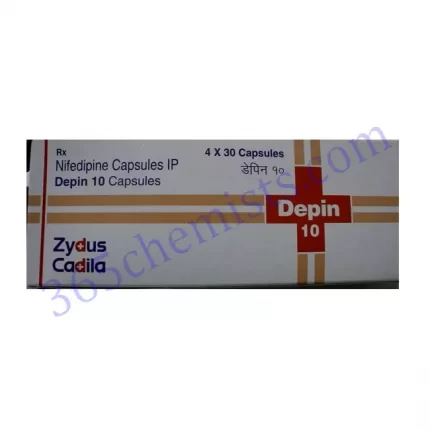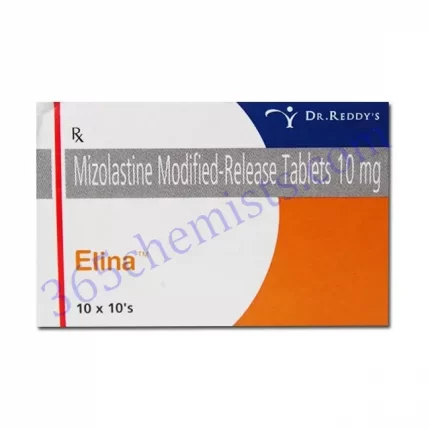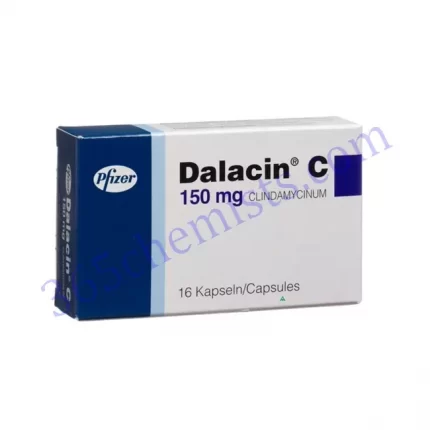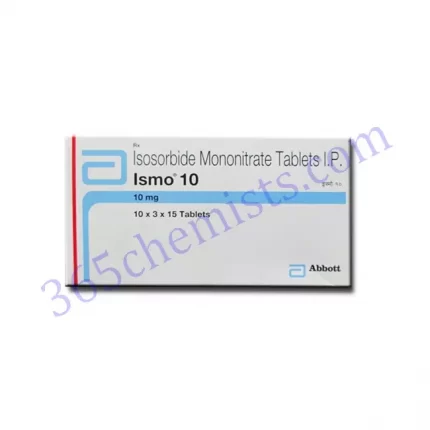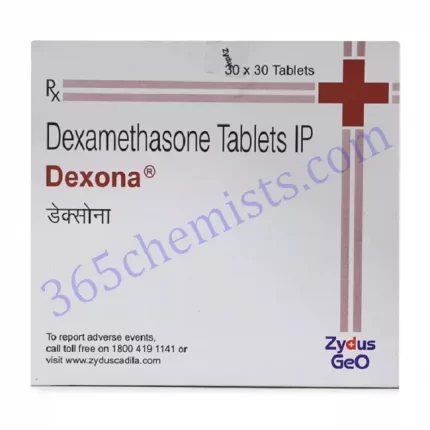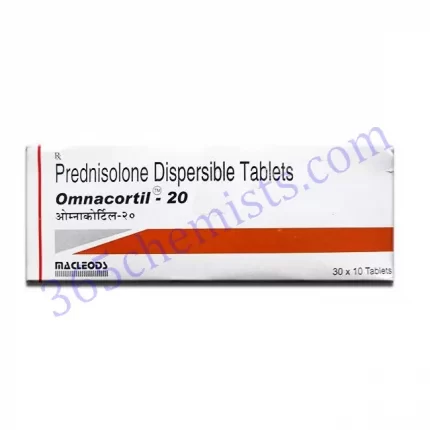Soltus 300mg Tablet: An Effective Antipsychotic Medication for Psychotic Disorders
The active component of the medication known as Soltus 300mg Tablet is the amount of amisulpride that is specified as 300mg. For the treatment of schizophrenia and other psychotic conditions, including bipolar disorder, the antipsychotic medication amisulpride is often prescribed. This detailed explanation aims to offer helpful insights into the composition, mechanism of action, indications, dosage, adverse effects, and preventative measures associated with the use of the Soltus 300mg Tablet.
Composition and Mechanism of Action:
Amisulpride, which is found in the Soltus 300mg Tablet, is a drug that blocks selectively the dopamine D2 and D3 receptors in the body. Dopamine is a neurotransmitter that plays a role in the development of psychotic symptoms. Amisulpride helps regulate the balance of dopamine by blocking the receptors in the brain that are responsible for its release. Amisulpride’s antipsychotic effects can be traced back to this particular mode of action, which is responsible for their production.
Indications and Usage:
The primary use for the Soltus 300mg Tablet is in the treatment of schizophrenia. Schizophrenia is a complicated mental disorder that is characterised by abnormal perceptions, thoughts, and behaviours. The positive symptoms of schizophrenia, such as hallucinations and delusions, as well as the negative symptoms, such as social withdrawal and a lack of motivation, can be effectively treated with this medication. In patients with schizophrenia who have responded favourably to initial treatment, the Soltus 300mg Tablet may also be utilised to prevent a relapse in their condition.
Dosage and Administration:
It is important to personalise the dosage of the Soltus 300mg Tablet based on the severity of the patient’s symptoms, the patient’s response to treatment, and the presence of any other medications being taken at the same time. It is extremely important to take the medication exactly as directed by the healthcare professional, both in terms of the dosage and the length of time.
The recommended dose of Soltus Tablet for adults is typically between 400 and 800 milligrammes (mg) per day, to be taken in two equal doses. However, depending on the circumstances, a lower dose, such as 300 mg per day, might be all that is necessary. The requirements of each individual patient will serve as the basis for the healthcare professional’s decision regarding the correct dosage.
Side Effects:
The active component in Soltus 300mg Tablet, amisulpride, has the potential to cause a number of side effects; however, not everyone will experience these effects. Restlessness, anxiety, disturbed sleep, increased prolactin levels, and gastrointestinal disturbances are common adverse effects that can occur when taking this medication. In most cases, these adverse effects are mild and temporary; however, it is imperative to speak with a medical professional in the event that they continue or become worse.
Amisulpride may in some instances cause more serious adverse reactions, including extrapyramidal symptoms (such as parkinsonism, dystonia, and akathisia), neuroleptic malignant syndrome, cardiovascular effects (such as orthostatic hypotension and tachycardia), and metabolic changes (such as elevated blood sugar and dyslipidemia). In the event that any of these potentially life-threatening side effects manifest themselves, immediate medical attention needs to be sought.
Precautions and Contraindications:
Before beginning treatment with Soltus 300mg Tablet, it is vitally important to inform the healthcare professional about any pre-existing medical conditions, particularly cardiovascular diseases, liver or kidney impairment, epilepsy, and breast cancer. In addition, it is important to inform the healthcare professional about any other pre-existing medical conditions. It is possible for certain medications, including antihypertensives, anticonvulsants, antidepressants, and antifungal agents, to interact negatively with the Soltus 300mg Tablet. As a result, it is imperative that any and all medications currently being taken be disclosed to the healthcare professional.
Patients who have been shown to have an extreme sensitivity to amisulpride or any of the other components of the formulation should not take the Soltus 300mg Tablet. It should not be used concurrently with drugs that are known to prolong the QT interval, nor should it be used in patients who have a previous medical history of QT prolongation or arrhythmias.
Conclusion:
An effective medication for the treatment of psychotic disorders, particularly schizophrenia, is the Soltus 300mg Tablet, which contains Amisulpride 300mg. Amisulpride is an antipsychotic medication that works by inhibiting the activity of dopamine receptors in the brain. This has the effect of reducing both the positive and negative symptoms of schizophrenia. To use Soltus 300mg Tablet in a manner that is both secure and efficient, it is essential to strictly adhere to the dosage and precautions that have been prescribed. It is possible to improve therapeutic outcomes and reduce the risk of side effects by maintaining regular monitoring and maintaining open communication with healthcare professionals.

